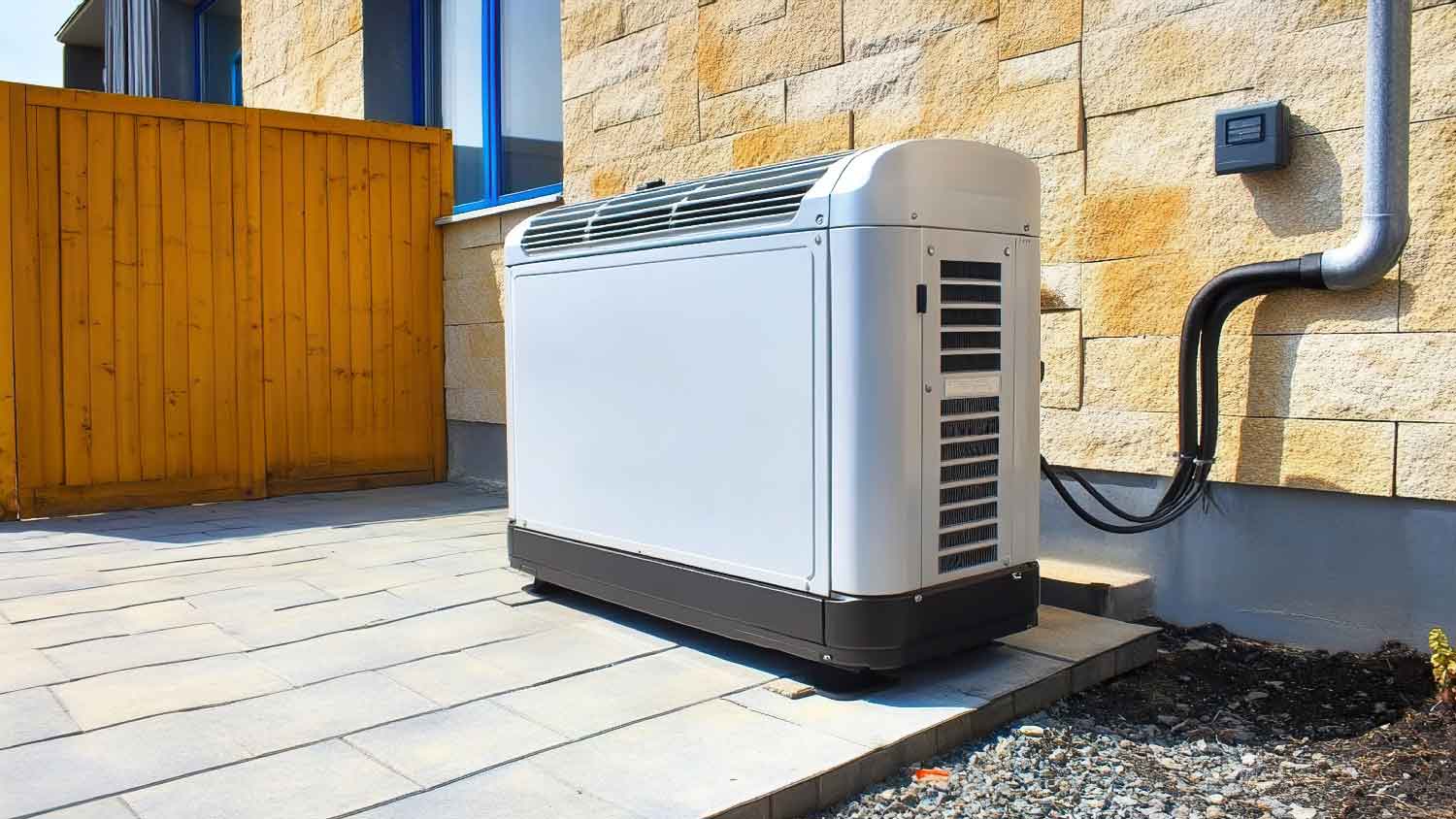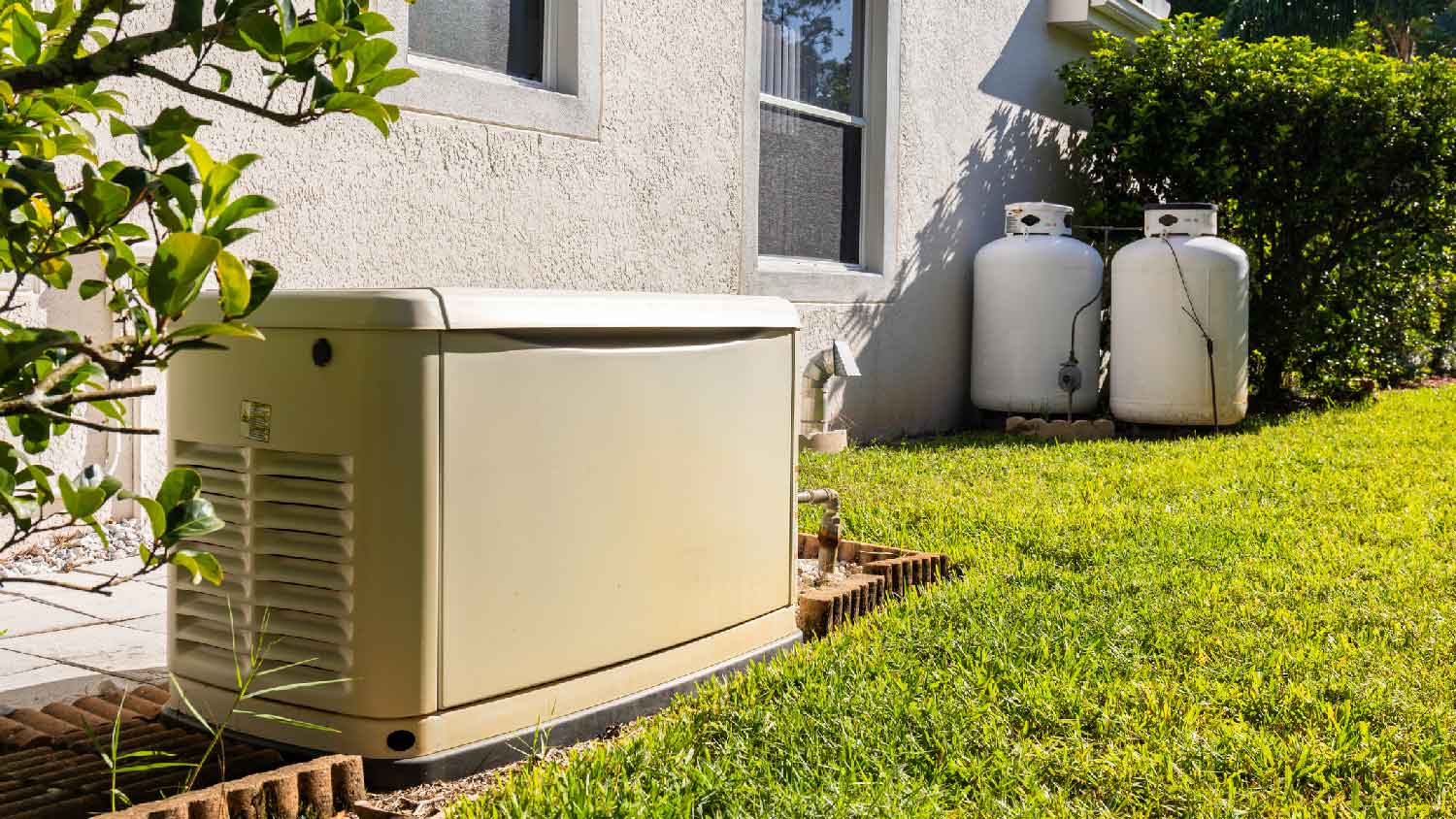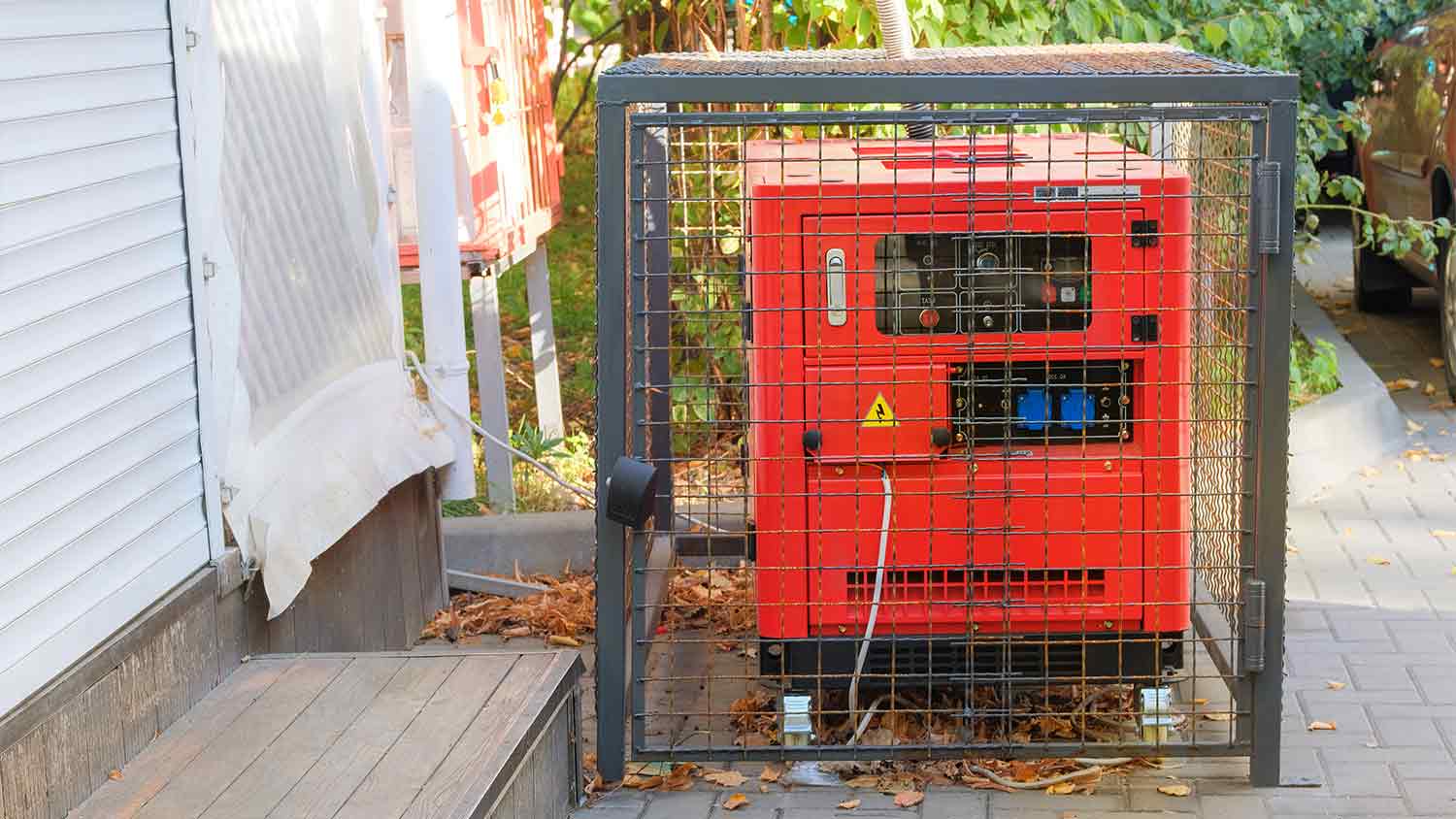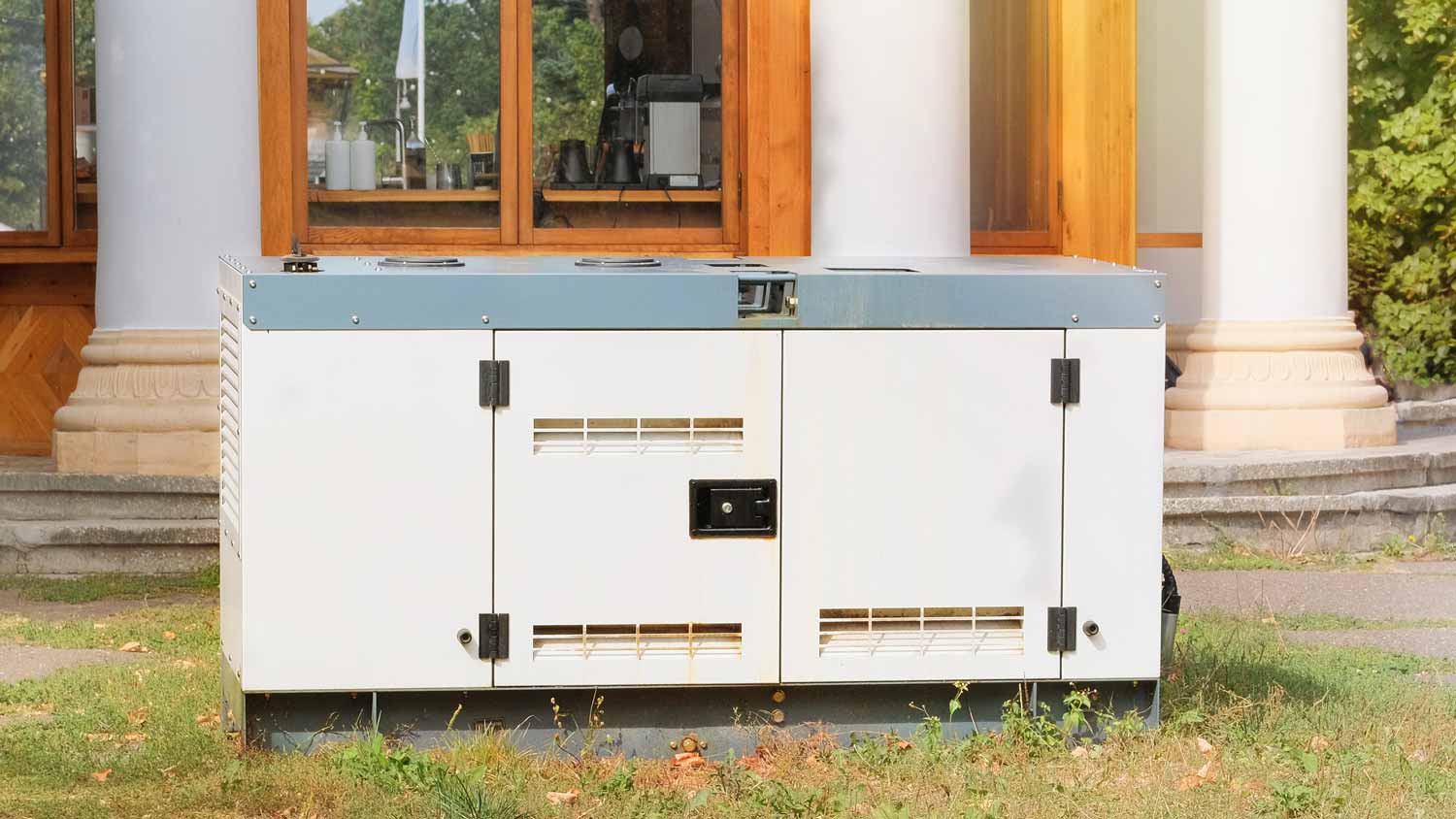Pros and Cons of a Whole-House Generator
Standby for all your alternative power info
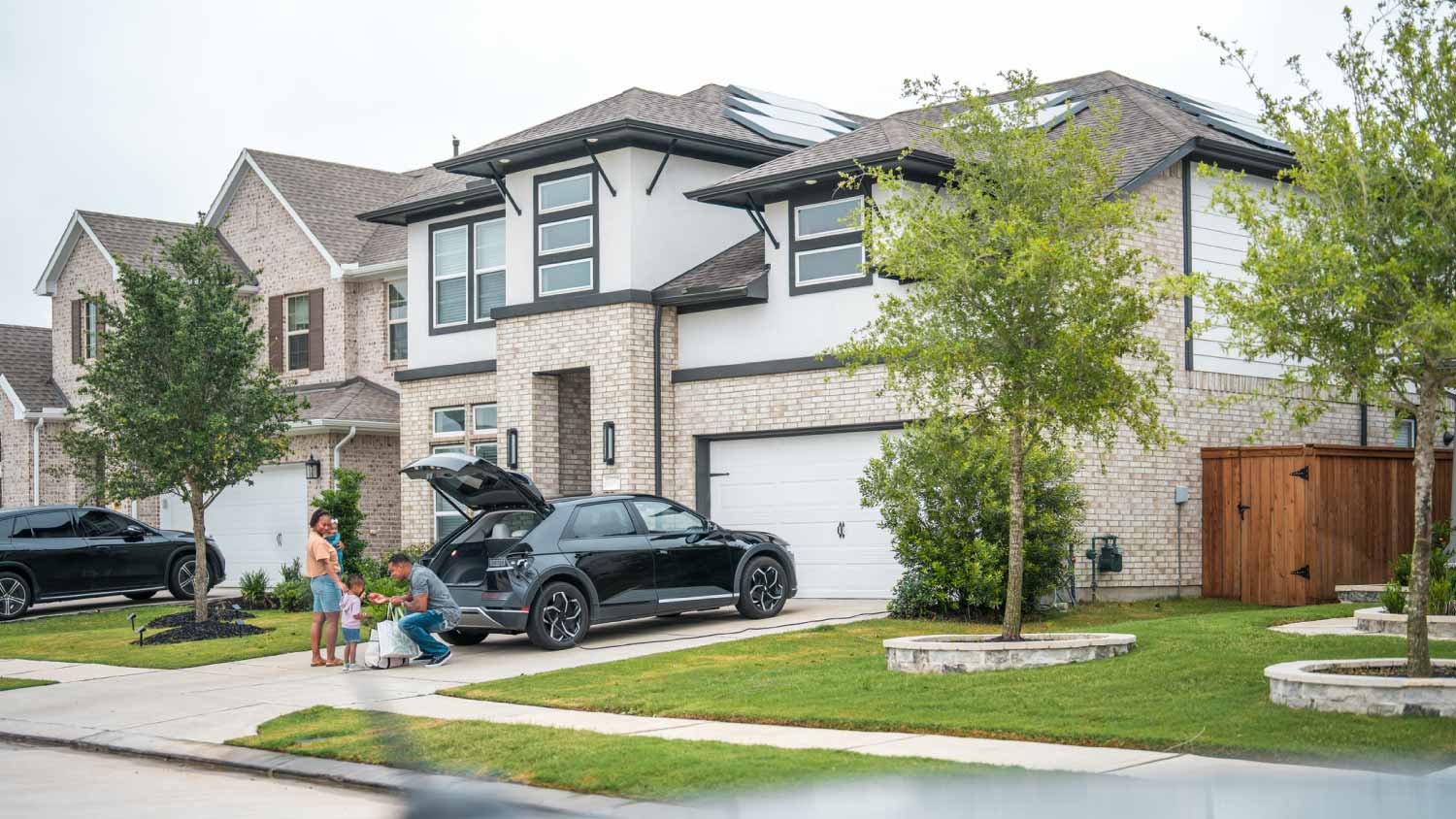

A whole-house generator provides power to large portions of a home for an extended period of time, using fuels like natural gas, propane, or diesel.
Whole-house generators excel at handling frequent power outage problems, last for decades, and they’re easy to run, especially when connected to an automatic transfer switch.
On the downside, these large generators are expensive, use lots of fuel, need frequent maintenance and must be sized carefully for your home’s electrical load.
Alternatives to whole-house generators include smaller portable generators, as well as high-tech solar backup systems.
Whole-house generators are designed to power whole rooms or the entire home during power outages, natural disasters, electrical grid failures, and similar circumstances. If you’re considering installing a whole-house generator, there are important pros and cons you should consider before hiring a local generator installer. Let’s go over the advantages and disadvantages of installing a whole-house generator.

What Is a Whole-House Generator?
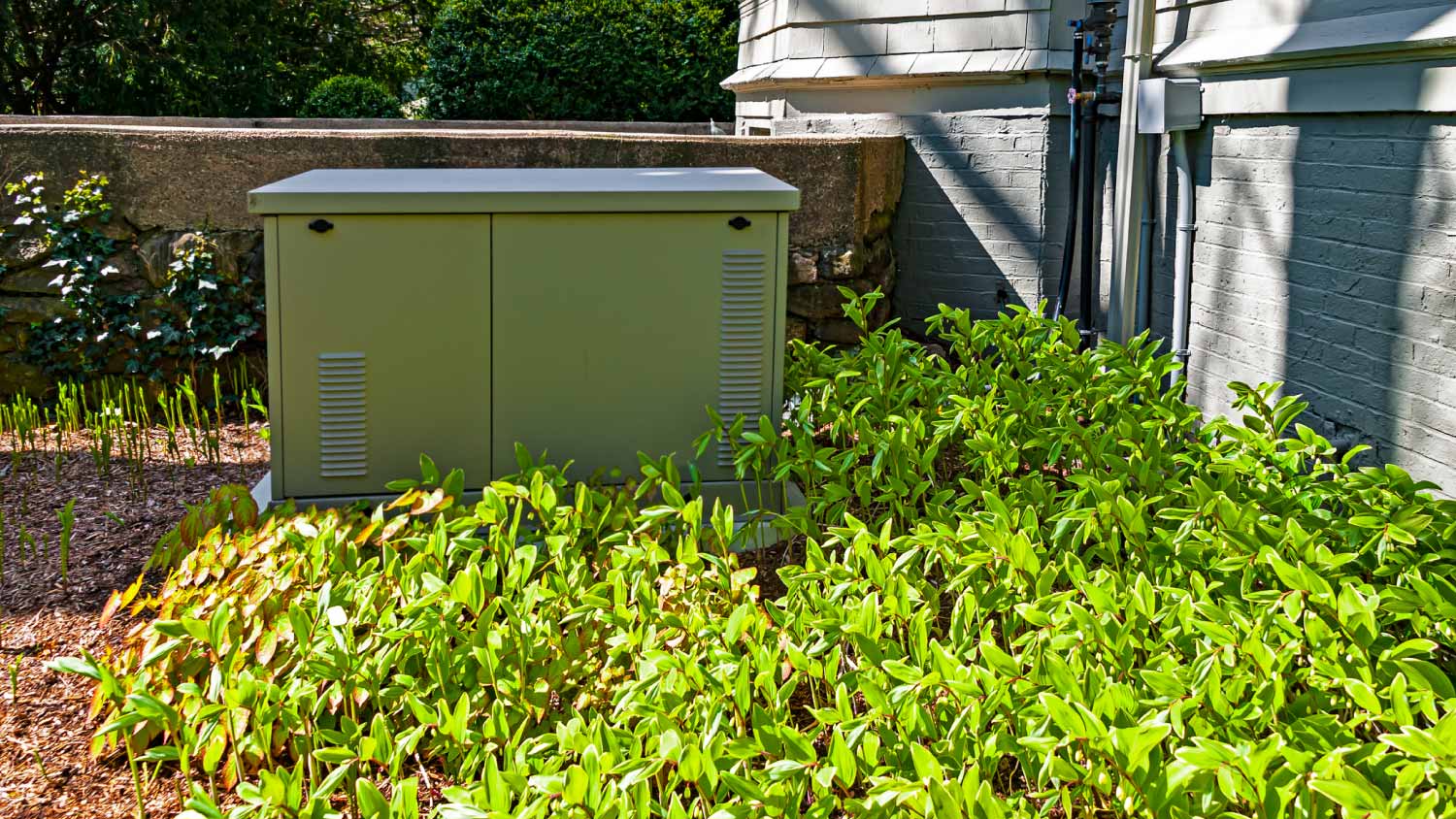
A whole-house generator provides a significant amount of electricity (up to 20 kWh or more for some homes), allowing it to power a home when the electrical grid fails or becomes unreliable. These generators are also designed to run for extended periods.
Whole-house generators use efficient, readily available fuels like propane, natural gas, or diesel—which is why you won’t find many powered by gasoline. They integrate seamlessly with home electrical systems, requiring professional installation and careful sizing. When properly managed, they provide a reliable power source when other options fail.
| Pros of Whole-House Generator | Cons of Whole-House Generator |
|---|---|
| Protection against power outages | Expensive installation |
| Long-lasting | Uses lots of fuel |
| Versatile fuel options | Requires precise sizing |
| Automatic features | Not all fuel types may be available |
| Quiet | Needs frequent maintenance when running |
| Ready for many disasters | Not a good choice for finished apartments |
Pros of a Whole-House Generator
Let’s look at the major pros of installing a whole-house generator.
Power Outage Protection
Whole-house generators are always ready to deal with serious power outages, even if they last for several days. The transition to generator power is smooth and easy—the whole-house generator will power on automatically when it detects an electrical outage. That’s great news if your power regularly goes out during extreme weather or temperatures.
Long-Lasting
When properly maintained, whole-house generators can last for decades—about 20 to 40 years. They’re intended to be a constant insurance for your home’s power. The lifespan of a whole-house generator ranges from 1,500 to 3,000 hours of run time.
Flexible Fuel Options
You have your choice of fuels when it comes to whole-home generators, allowing homeowners to shop around and choose the right fuel for the location and intended purpose. If your area has a natural gas connection, that’s a great, permanent fuel option. Or propane deliveries can be an affordable option, making it easy to schedule regular fill-ups.
Automatic Power
Whole-house generators require a transfer switch, or an addition to your home electrical power that safely switches your home system over to the generator without causing overloads or shorts. Most modern transfer switches have sensors to automate them. They can detect electrical outages and quickly switch over to generator power.
Relatively Quiet
Whole-house generators make some noise, but they’re significantly quieter than portable generators, especially with gas fuels. There’s no worry about them keeping you up at night or causing additional stress.
Cons of a Whole-House Generator
Here are a few disadvantages of whole-house generators to keep in mind.
Expensive Installation
Powering your whole house with an alternative option is expensive, especially the initial installation costs. You can expect to pay between $1,500 and $8,800 to install a whole-house generator. Many generators will need additional installation costs for a fuel tank or gas line, and you’ll also need to hire an electrician to place the transfer switch.
Uses Lots of Fuel
These generators are designed to run continuously for longer periods of time. While this makes them convenient and reliable, it also means they burn through a lot of fuel. Unless your generator is connected to a large tank or a natural gas line, you can expect to refill it about once per day that it’s running.
Needs Careful Sizing
Sizing a whole-home generator is a precise process that requires determining exactly how many circuits you want to power (or whether you want to power the entire home) and calculating the necessary wattage and amperage. But that’s just the beginning.
A whole-home generator also needs additional wattage beyond basic usage to handle the startup power of connected appliances—about three times their normal wattage requirements. Even with these factors combined, the generator should not exceed 90% of its total capacity. Your home's electronics usage also plays a role, so be prepared to discuss these details with an electrician.
Potential Limited Fuel Availability
Before you have your heart set on a fuel type for your generator, check its availability in your area. You cannot install a natural gas generator without an available natural gas line. Keep in mind that the cost of propane and diesel deliveries will vary depending on location, adding long-haul charges and road taxes for remote areas. Plus, diesel versions do not function well in extremely cold weather, so that’s worth considering in your fuel type decision.
Requires Frequent Maintenance
Since whole-home generators run constantly, they require frequent maintenance to keep them running well. For example, the operating engine will need refueling, oil checks, as often as every day or so. That means you will have to frequently stop the generator and give it a checkup, even when running it for long periods.
Rarely Suitable for Home Additions
While you could use a whole-house generator to power an added circuit, like a finished basement apartment or attic suite, it’s probably not worth it. The maintenance, fuel costs, and eventual wear-and-tear from frequent use is not an ideal situation for the generator. It’s usually more cost-effective to wire a finished addition into your existing electrical panel or satellite panel and power it the standard way.
Alternatives to a Whole-House Generator
Not sure if a whole house generator is the right fit? Consider these two common alternatives.
Portable generators: Portable generators have advantages—they’re mobile and don’t require a transfer switch in most cases. If you only need to power a few important appliances, a portable generator could be a good choice.
Solar battery backups: Solar backups connect an array of home batteries to home solar panels so they’re charged and ready for a blackout. They’re easy to use and refill on their own, but they aren’t as reliable as a fuel source. Solar battery setups are significantly more expensive than a whole-home generator.
Is a Whole-House Generator Right for You?
Here are the signs a whole-home generator is a good fit for your house:
You live in an area with frequent blackouts: Regular power blackouts are one of the best signs that you’ll benefit from a whole-home generator.
You have many rooms or appliances that need power: If you need or prefer to power entire rooms during a power outage, a whole-house generator is the best way to achieve that.
You have a natural gas connection: Natural gas works especially well with a whole-house generator, so if your home is already equipped, that’s an easy start for a no-fuss installation.
You’re preparing for off-grid living: If you prefer a home to have power while functioning off the electrical grid, a whole-home generator is the most powerful option.
Frequently Asked Questions
Yes, whole-house generators run constantly for extended periods. Whole-house generators can run for longer periods of time than portable generators, but be careful. First, they may need regular applications of engine oil (as frequently as daily), depending on the engine design. Second, running constantly for several days will increase the wear and tear on the generator and shorten its lifespan.
In some cases, yes. You can get dual or triple-fuel capable generators, although you may need a conversion kit to switch between fuels, so it’s not as easy as flipping a switch. For example, many manufacturers offer whole-house generators that work with natural gas or propane with the right preparation.
Whole-house generators need to be installed on level ground several feet away from walls and other objects. Because they tap into the electrical system directly, they usually need to be close to your home electrical panel for a transfer switch installation. It also helps with installation if they are near to a gas line or propane tank installation.
In many cases, you’ll need a permit or basic inspection to install one of these large generators. Since they include significant alterations to your home electrical system and many produce exhaust fumes, local governments often require jumping through a few hoops for general safety purposes. Your installer may be able to help you with these permits.


